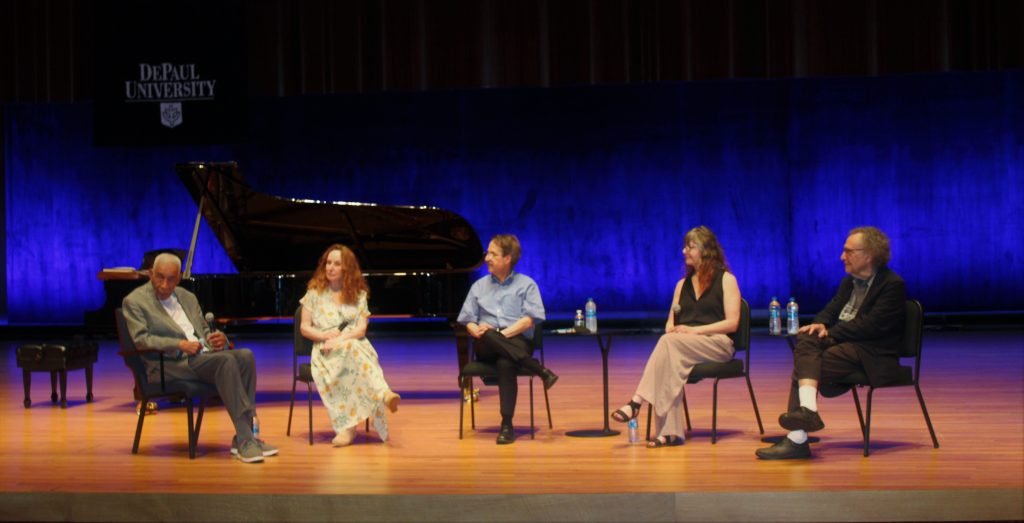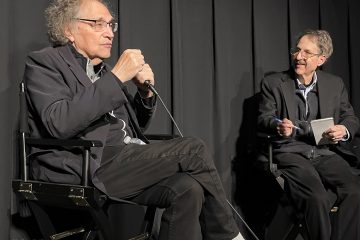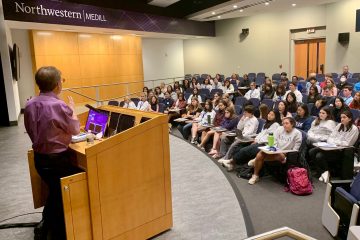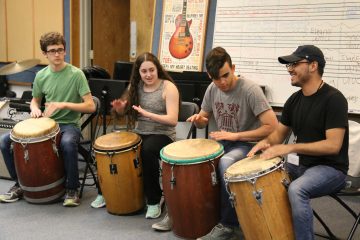‘Lincoln Park’s Secret Virtuoso’

Not many 84-year-old pianists add difficult new works to their repertoire — and dare to play them for hundreds of listeners.
But Norman Malone is not any octogenarian musician. He proved that again on June 14 at DePaul University, his alma mater. Appearing before a large audience in the school’s Holtschneider Performance Center, Norman offered his first public performance of a rare, left-hand-only transcription of one of Sergei Rachmaninoff’s most celebrated works, the Prelude in C-Sharp minor.
The occasion was a screening of Kartemquin Films’ “For the Left Hand,” presented by the Lincoln Park Community Research Initiative, in a program titled “Lincoln Park’s Secret Virtuoso.” Before the film began, Norman offered a mini-recital that also featured a left-hand transcription of J.S. Bach’s Prelude in C Major from Book One of the “Well-Tempered Clavier,” and the opening solo of Ravel’s Piano Concerto for the Left Hand.
The crowd responded enthusiastically to each of these works. After the performance, Peabody Award-winning Kartemquin Films director Maria Finitzo launched a panel discussion by asking Norman the value of studying music — even for people who aren’t going to become musicians.
“I taught music for more than 30 years in the Chicago Public Schools,” said Norman. “Music is the most important thing in my life. I wouldn’t have survived without it.
“They try to eliminate music from the schools. That’s foolish.”
Added “FTLH” co-director Gordon Quinn, “Music [in the schools] is under threat now. … When you leave the arts out, you’re not fully educated.”
“FTLH” co-director/editor Leslie Simmer amplified the point: “Music is an art, but music is also a language. It’s a form of communication that crosses borders, nations, cultures. It’s not extras. It’s an essential, biological part of the human experience.”
The proof of these statements – and of Norman’s influence on generations of young musicians – came from his former students in the audience, whom Maria invited to share their recollections of their beloved teacher.
Norman’s choral class, said one former student, was “the only class nobody cut. You’d run across Oz Park as fast as you could to get to that class. He was more than a teacher to everybody. Everybody had their father, but he was our father figure.”
Said another student, “He had such grace, and everyone respected him. He brought the idea of music being important, and humanity being important.”
And he continues to do so.





